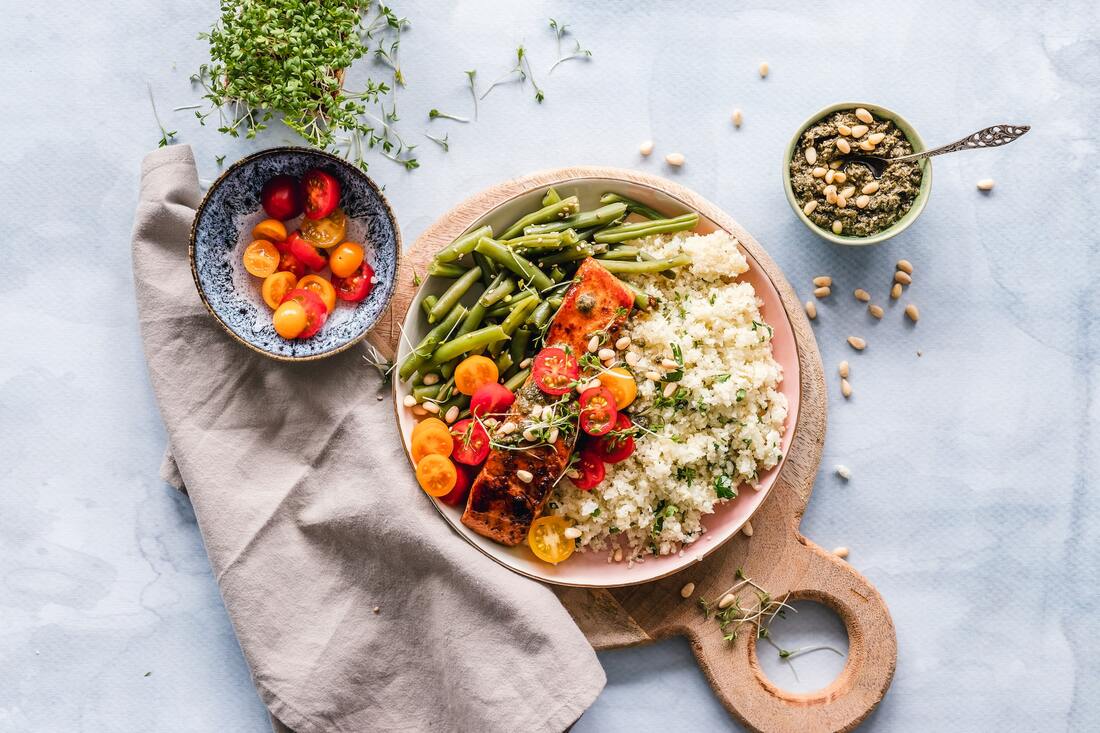|
Let’s look at what clean eating really is, the benefits of a clean diet, and ways to eat cleaner. Before we begin, let’s talk about the word choices we use for food. To be clear, there’s no such thing as “dirty eating.” No food on its own is inherently bad, perhaps unless it’s expired or is highly processed. All types of food—whether it be leafy green salads or saucy spaghetti with a delicious piece of restaurant bread—can be enjoyed in moderation. The philosophy behind clean eating is relatively simple. Clean eating encourages the consumption of whole foods, while minimizing or eliminating processed foods that contain added sugars, salts, and artificial ingredients. Benefits of this dietary choice include feeling more energized, improving heart health, and losing weight if that is what is desired (Baker & Walsh, 2020). While clean eating may be a great option for you if you’re looking to incorporate more whole and natural foods into your diet, researchers also suggest that being too restrictive about your food plan may be detrimental (McCartney, 2016). Eliminating all foods with added sugars or limiting yourself from indulging in cravings from time to time may not only lead to feelings of irritability and increased hunger, but you may end up overeating to compensate or could be at an increased risk of developing an eating disorder (Ambwani et al., 2019). A good reminder here is to choose a dietary lifestyle that is best for your body and speak with a healthcare provider about any nutritional questions or concerns you may have. Food ListLet’s look at some healthy foods to incorporate into your “clean” diet. This list is by no means exhaustive but includes a few options for different forms of macronutrients and micronutrients (USDHHS, 2014). CarbohydratesWith carbs, you may want to stick to options that are lower in processed sugars and higher in fiber. Here are some options:
ProteinsWhen we talk about different protein options, we want to make sure they are high quality (e.g., organic or grass-fed). Below are options of healthy proteins to try.
FatsMost of the healthy fats from which we can derive nutrition are often found in whole, plant-based food options. Here is a list of some healthy fats you may want to include in some of your home recipes.
Tips to Get StartedClean eating isn’t something that can be done overnight and may take time to build up to before adopting it as a lifestyle choice. Here are some tips to help as you start (or continue) a clean eating journey.
In SumRevamping your diet can be a challenge, but it is something you can achieve. If you’re looking for a new diet or just to eat healthier, clean eating may be a choice you want to consider. A gentle reminder that “clean eating” is a lifestyle choice and may take time to get used to. If you find yourself struggling to keep up with clean eating habits, try your best to be kind to yourself and remember to focus on eating in moderation. Hopefully, this article helped you gain a foundational understanding of clean eating and provided tips to start your clean eating journey. References
Comments are closed.
|
AuthorPamela (Pami) Parker currently serves as a holistic practitioner, coach and teacher. Her intention is to be a compassionate guide to those who choose to experience a healthier, happier and more peaceful way of life. Categories
All
|
Company Details
The Self-Care Cafe is a member of The Conscious Center
Dutch Chamber of Commerce (KvK) Registration #64532593
Taxation (VAT) Number: NL670496157B01
Privacy Policy
The Self-Care Cafe is a member of The Conscious Center
Dutch Chamber of Commerce (KvK) Registration #64532593
Taxation (VAT) Number: NL670496157B01
Privacy Policy

